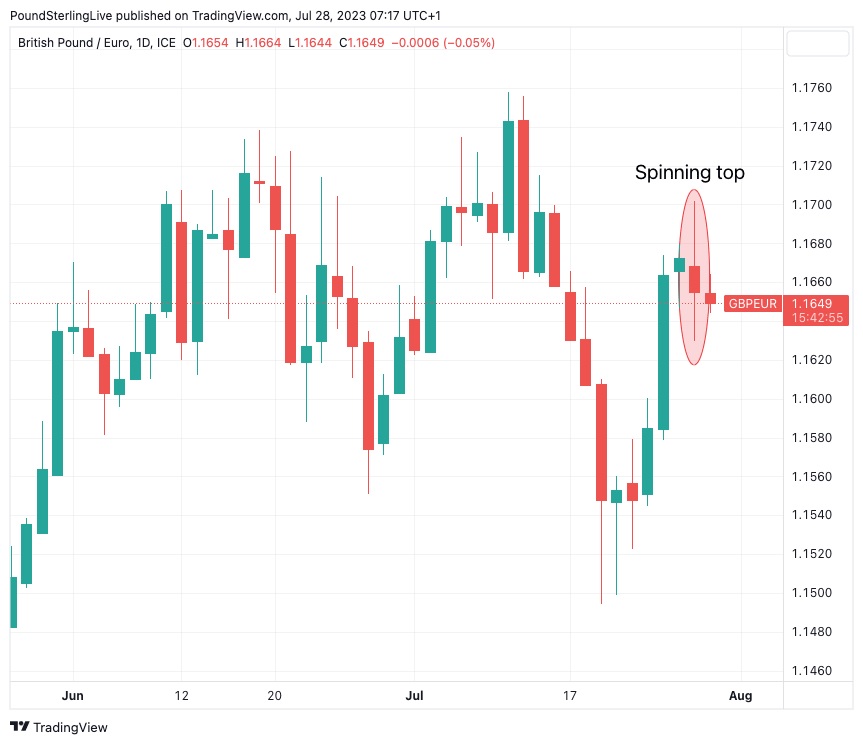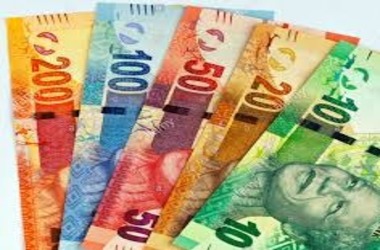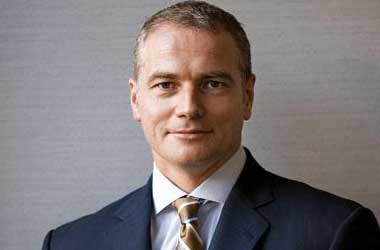 In a recent development, the European Central Bank (ECB) announced its readiness to halt its interest rate hiking cycle after raising the deposit rate to its highest-ever level. While the Euro’s performance was expected to dominate the headlines, it was the British Pound that faced broad-based losses against all but one of its G10 counterparts. The Euro experienced widespread selling following the ECB’s decision and guidance, resulting in a nearly 1.0% loss against the U.S. Dollar. The markets responded by reducing the odds of a September rate hike to below 50%. This has led market participants to believe that a similar fate might await the Pound if the Bank of England (BoE) signals its intention to pause.
In a recent development, the European Central Bank (ECB) announced its readiness to halt its interest rate hiking cycle after raising the deposit rate to its highest-ever level. While the Euro’s performance was expected to dominate the headlines, it was the British Pound that faced broad-based losses against all but one of its G10 counterparts. The Euro experienced widespread selling following the ECB’s decision and guidance, resulting in a nearly 1.0% loss against the U.S. Dollar. The markets responded by reducing the odds of a September rate hike to below 50%. This has led market participants to believe that a similar fate might await the Pound if the Bank of England (BoE) signals its intention to pause.
The depreciation of the Pound can be attributed to the belief that the ECB and the Federal Reserve have given the BoE the room to indicate an impending peak for UK interest rates. Prior to this, markets had anticipated up to three more rate hikes from the BoE, the highest among major central banks. With these expectations now likely to fall, Sterling’s previous outperformance might turn into underperformance.
FX Markets React to European Central Bank’s Decision and Speculate Bank of England’s Next Move
The BoE’s stance is likely to be influenced by below-consensus inflation figures released this month and global deflationary trends expected to impact the UK in the coming months. Analysts anticipate that the central bank may consider maintaining interest rates unchanged, reflecting a data-dependent and rate-hike-pausing approach. The Pound to Euro exchange rate (GBPEUR) experienced a 0.15% drop to 1.1655 when the ECB signaled the possibility of its July rate hike being the last. Nevertheless, the ECB clarified that future rate hike decisions would depend on incoming economic data. The forthcoming inflation data from Germany, France, and Spain, followed by the all-Eurozone inflation print on Monday, will be crucial in shaping the GBPEUR exchange rate.

Market participants are closely monitoring ECB sources and German inflation data for any further impact on rate expectations. As central bank communication becomes less influential, markets will likely rely more on eight weeks of data releases, leading to increased volatility in the Euro. In a noteworthy development, ECB President Lagarde confirmed the central bank’s “open-minded” attitude toward future policy, signaling a departure from forward guidance. The statement from the Bank emphasized that the key ECB interest rates would be set at sufficiently restrictive levels for as long as necessary.
An important change in the communication strategy was observed in the statement, where the previous wording “interest rates will be brought to sufficiently restrictive levels” was replaced with “set at.” This subtle shift indicates the ECB’s inclination towards reaching the peak and halting the rate hiking cycle. During the post-decision press conference, ECB President Christine Lagarde acknowledged the intentional change in wording. Unlike previous occasions, Lagarde refrained from pre-announcing further hikes when questioned about the bank’s future policy direction. This new stance led to market reactions, including a sell-off in the Euro and lower yields, with a reduced probability of a September rate hike, now estimated at less than 35% according to futures.
The Pound’s performance remains closely tied to the evolving rate hike expectations, and market participants eagerly await the Bank of England’s upcoming statement to gauge its future policy direction.




